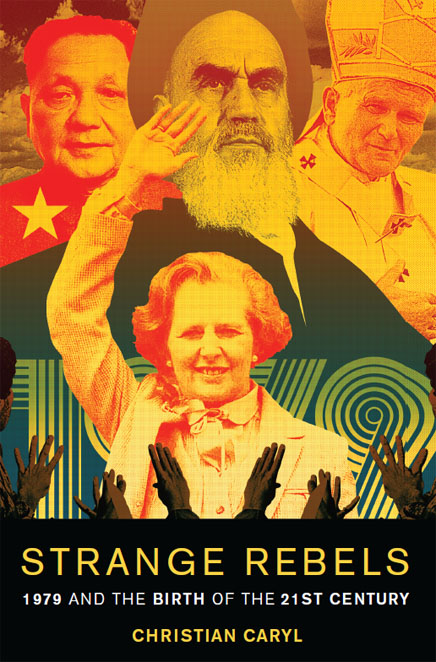
Strange Rebels
1979 and the Birth of the 21st Century
کتاب های مرتبط
- اطلاعات
- نقد و بررسی
- دیدگاه کاربران
نقد و بررسی

March 4, 2013
The end of the 1970s saw the emergence of a dizzying array of ideologies and movements, and Caryl contends that their ripples are still spreading across the surface of the modern world. The Islamic Revolution in Iran, the reorientation of Chinese socialism under Deng Xiaoping, Pope John Paul II’s outreach to Eastern Europe, the free-market doctrine of Margaret Thatcher, and the Soviet invasion of Afghanistan all began in earnest in 1979, and Caryl, an editor at Foreign Policy and Newsweek, examines how these events—each a reversal of course and a push for a new order—would come to shape history. Short and readable (if occasionally repetitive) chapters concentrate in turn on the situation in each highlighted country, and in particular on the ideas and machinations of the individuals responsible. What they shared, despite their widely varying goals, is that each “drew... motivation from values, a firmly held set of moral principles; policy was just a way of putting them into action.” Caryl displays an impressive facility with Western, Soviet, Chinese, and Islamic political traditions and circumstances, and he manages to present a relatively coherent and unified view of world affairs. Agent: Andrew Wylie, the Wylie Agency.

March 15, 2013
In a highly focused work, Foreign Affairs deputy editor Caryl finds that the year 1979 engendered a remarkable crop of history-changing leaders. The author defines a counterrevolutionary as "a conservative who has learned from the revolution." This befits the leaders he profiles here--Deng Xiaoping, Margaret Thatcher, Ayatollah Khomeini and Pope John Paul II--who emerged from the fires of the turbulent 1970s. They were, alternately, called revivalist, reactionary or radical, but they were the leaders of the hour, for better or worse, defining the direction of ideological currents up until the present. With the United States mired in political cynicism, an energy crisis and stagflation, the Soviet Union took advantage of a loosening of detente by bolstering its strategic presence in Afghanistan that was to help pull down the entire communist structure. In Iran, the people demonstrating against the hated shah rallied behind Khomeini, returning from long years in exile, radicalized and resolved to harness the popular discontent in an Islamic Republic. Similarly, in China, with the death of Mao Zedong, newly rehabilitated warrior Deng recognized the need to direct the pent-up pressures from the Cultural Revolution in a gradual leaking of private enterprise that unloosened decades of communist orthodoxy and unleashed economic growth. Meanwhile, the unlikely conservative leader Thatcher sailed to power by repudiating the postwar consensus on the British welfare state and embracing a merciless economic refurbishment involving monetarism and privatization. Another popular movement, among beleaguered Polish miners, got an enormous boost from the visit of the new pope, John Paul II, formerly their own Karol Wojtyla, who lifted the fear from the long-subjugated masses of Eastern Europe. As ably shown by Caryl, the events of this cataclysmic year would continue to bear fruit for years to come. An astute assessment of the efforts of a group of historic newsmakers.
COPYRIGHT(2013) Kirkus Reviews, ALL RIGHTS RESERVED.

























دیدگاه کاربران